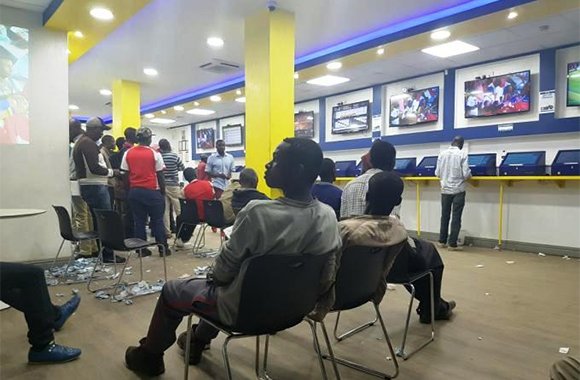An aggressive epidemic is sweeping across Sub-Saharan Africa, and it is not a viral outbreak. It is the silent yet devastating destroyer of gambling addiction. This issue is tearing apart families, ruining lives, and shattering futures across the continent.
The rapid growth of the betting industry highlights the urgent need for action. Africa’s gambling market is projected to reach $11 billion by 2032. Specific market values include:
- Uganda: $450 million by 2025
- Kenya: $1 billion
- Ghana: over $900 million
In Nigeria alone, an estimated 60 million people actively bet, spending nearly $1 billion daily, according to 2023 data from the National Lottery Trust Fund. These figures are staggering but only scratch the surface. High unemployment rates 33% in Nigeria, 25% in Kenya, and 12% in Ghana fuel this epidemic.
The consequences are dire. Nearly half of bettors suffer from depression, while over two-thirds face severe anxiety. In Zimbabwe and many other African countries like Nigeria, Kenya, Uganda, Tanzania, Ghana, and Ethiopia, over 76% of youth aged 18-35 have engaged in gambling at least once, betting houses are crowded every hour.
Personal Tragedies
These statistics represent real lives lost to an industry profiting off poverty. In 2023, Samuel Adekoya, a student at Federal Polytechnic Ilaro in Nigeria, took his own life after losing his school fees on SportyBet. In Kenya, a university student committed suicide after losing KES 100,000 on a bet. Ibukun, a teacher in Nigeria, lost his savings of an estimated N5,000,000 over a decade of betting.
University students, equipped with smartphones and pocket money, are particularly vulnerable. In Nigeria, students can bet with as little as N50, while in Kenya, wagers can start at 50 KES. Families in Uganda report that some gamblers use tuition fees for betting, leading to tragic outcomes. A 2023 study in Ghana found that 40% of university students gamble, many facing financial distress as a result.
Accessibility exacerbates the problem. From Kampala to Yaoundé, brightly lit betting shops beckon potential customers. Apps like Bet365, 1xBet, and Betway, are just a tap away, enticing youth with high odds and flashy bonuses, often featuring endorsements from football legends and celebrities.
Funding for betting has become seamless, with Nigerian bank apps like OPay and Flutterwave enabling instant deposits, while mobile money platforms like M-Pesa facilitate impulsive betting. Cryptocurrency wallets are also gaining popularity for funding betting accounts.
Public Health Emergency
Sadly, this crisis is often dismissed as a personal failing rather than a public health emergency. Africa’s mental health systems are under-resourced, and mental health is frequently not prioritized within public health frameworks. In Nigeria, for example, there are no specialist treatment centers for gambling addiction, and Kenya faces similar gaps.
It’s important to recognize that gambling addiction is a disorder. Pathological gambling can drive individuals to desperate measures, including theft and fraud. In a continent where 42% of sub-Saharan Africans live below the poverty line, gambling can seem like a quick and easy path to economic relief. Cultural stigma often brands it a moral failure, discouraging victims from seeking help.
Government Responsibility
While African governments pocket substantial revenue from gambling licenses, they often do little to mitigate the resulting harm. Regulations are alarmingly inadequate, neglecting vulnerable populations, particularly youth. For instance, Nigeria’s National Lottery Regulatory Commission struggles to monitor operators, and Tanzania’s Gaming Board has tightened regulations, but enforcement remains weak.
In contrast, countries like Japan, Germany, and Malta implement stringent regulations, including advertising bans and spending caps, to protect citizens from addiction. South Africa’s National Responsible Gambling Programmer serves as a model, funding counseling and awareness campaigns through industry levies.
Making Headway
Recent efforts show promise but fall short of what is needed. Nigeria’s Lagos and Oyo States support Gamble Alert’s campaign, while Kenya’s 2018 tax reforms aim to deter gambling. Uganda’s 2023 ban on new foreign licenses and Tanzania’s regulatory tightening are steps in the right direction, but these are just drops in an ocean of need. Addressing the gambling epidemic in Sub-Saharan Africa requires urgent and comprehensive action to protect vulnerable communities and support those affected.
